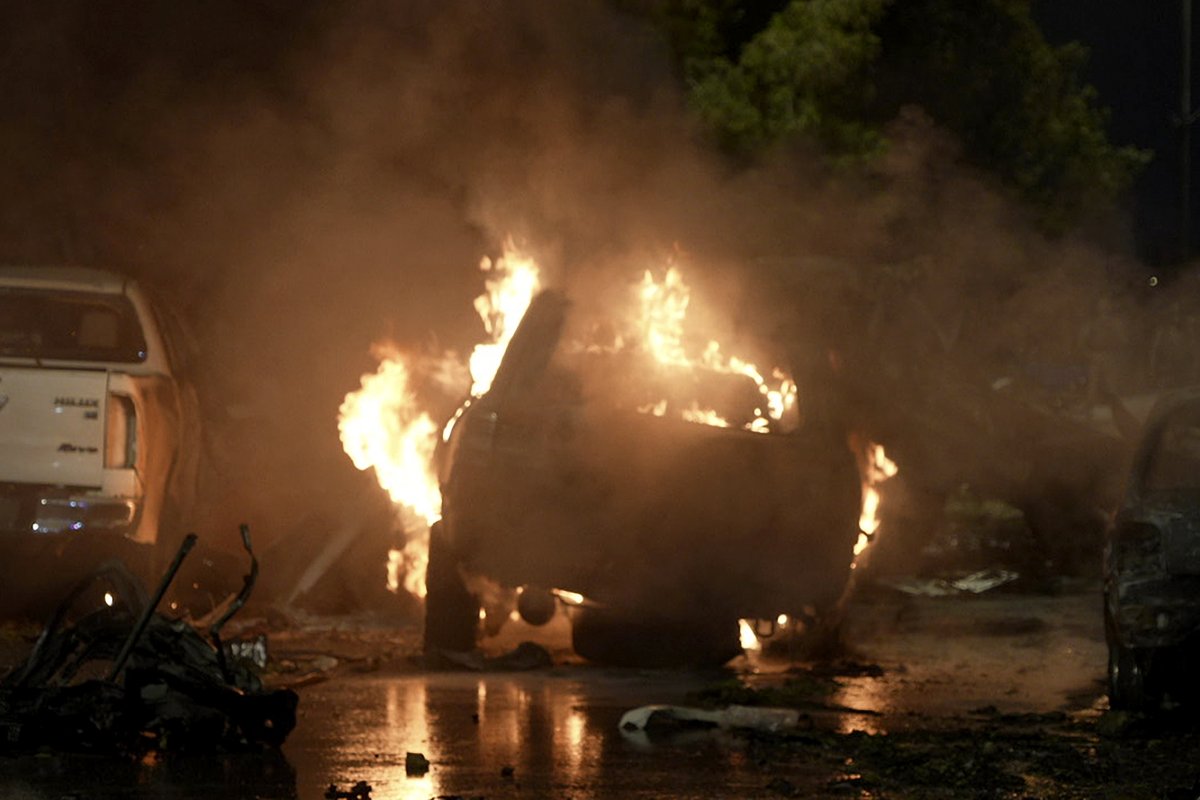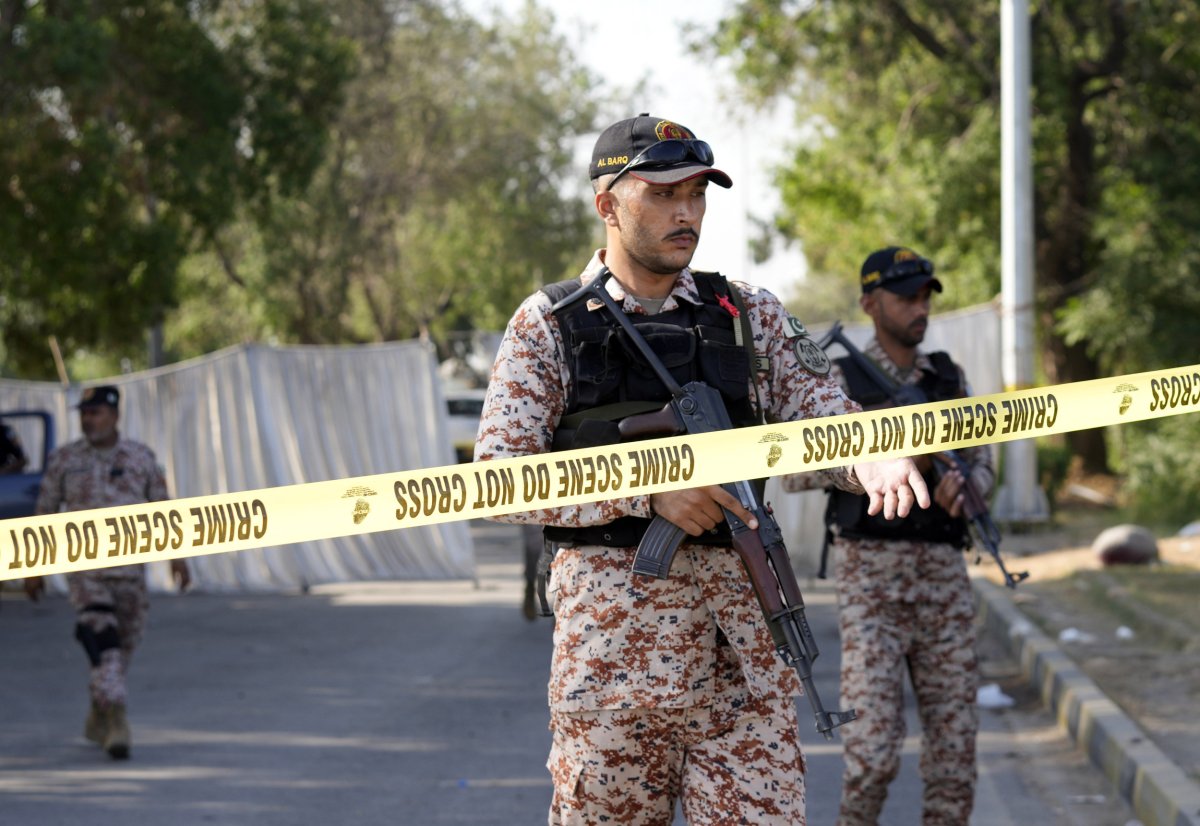A separatist group in Pakistan has said it was behind the bombing of a convoy of Chinese nationals outside Karachi’s main airport, which resulted in the deaths of two Chinese workers and injured eight others.
The Baloch Liberation Army said the attack, which occurred in the southern port city late on Sunday night, was the work of a suicide bomber.
The attack comes a week before Pakistan is set to host a summit of the Shanghai Cooperation Organization, a security alliance founded by China and Russia to counter Western influence, raising significant concerns about the Pakistani government’s ability to ensure security for high-profile events and foreign nationals.

A vehicle in the aftermath of an explosion outside an airport in Karachi, Pakistan, on October 6. The Baloch Liberation Army, a separatist group, has claimed responsibility for the bombing, which killed two Chinese nationals and wounded eight others.
Mohammad Farooq/AP
Police officers who were escorting the convoy when the explosion occurred were among the injured.
Pakistani news channels have aired footage showing flames engulfing vehicles and a thick plume of smoke rising from the scene, as troops and police cordoned off the area.
Counterterrorism officials are investigating how the attacker was able to penetrate security in Karachi, Pakistan’s largest city.

Security officials standing guard at the site of the explosion on October 7. The bombing has raised questions about the Pakistani government’s ability to ensure security for high-profile events and foreign nationals.
Fareed Khan/AP
Junaid Baloch, a spokesperson for the BLA, said the bomber specifically targeted a convoy of Chinese engineers and investors leaving the airport.
The BLA, which is mainly based in the tumultuous southwestern province of Balochistan, has attacked foreign nationals and security forces across Pakistan in the past.
The Chinese Embassy in Islamabad confirmed that the convoy included staff members from the Port Qasim Electric Power Company, a coal-powered plant developed through a joint venture between China and Pakistan.
Pakistani security officials indicated that a bomb disposal unit had cleared the road outside the airport prior to the convoy’s movement.
However, to avoid inconveniencing residents and travelers, the road had not been fully blocked, according to officials who spoke to the Associated Press on the condition of anonymity.
Pakistan’s Ministry of Foreign Affairs condemned the bombing, calling it a “heinous terrorist attack” and extending condolences to the families of the victims.
Prime Minister Shehbaz Sharif described the attackers as “enemies of Pakistan” and assured that they would face punishment.
“I strongly condemn this heinous act and offer my heartfelt condolences to the Chinese leadership & the people of China,” he wrote on X, formerly Twitter. “Pakistan stands committed to safeguarding our Chinese friends. We will leave no stone unturned to ensure their security & well-being.”
Both Pakistan and the United States have designated the BLA, which is thought to have about 3,000 fighters, as a terrorist organization. The group regularly targets Pakistani security forces.
Analysts say the group’s ability to launch high-profile attacks has increased in recent years, raising the possibility of further assaults, especially as the Shanghai Cooperation Organization summit approaches.
PowerChina Resource Ltd., which is part of the Power Construction Corporation of China, owns the Port Qasim Electric Power Company and is coordinating responses to the incident.
Thousands of Chinese workers reside in Pakistan as part of Beijing’s multibillion-dollar Belt and Road Initiative, which funds major infrastructure projects across the country.
The BLA has long waged an insurgency as it seeks independence for Balochistan, frequently warning against the involvement of Chinese nationals in the region.
In August, a series of deadly assaults killed more than 50 people in Balochistan, where attackers targeted Chinese-funded development projects.
Balochistan, Pakistan’s largest yet least populated province, is rich in oil and minerals and home to an ethnic Baloch minority that has accused the central government of discrimination and exploitation.
This article includes additional reporting from the Associated Press.



